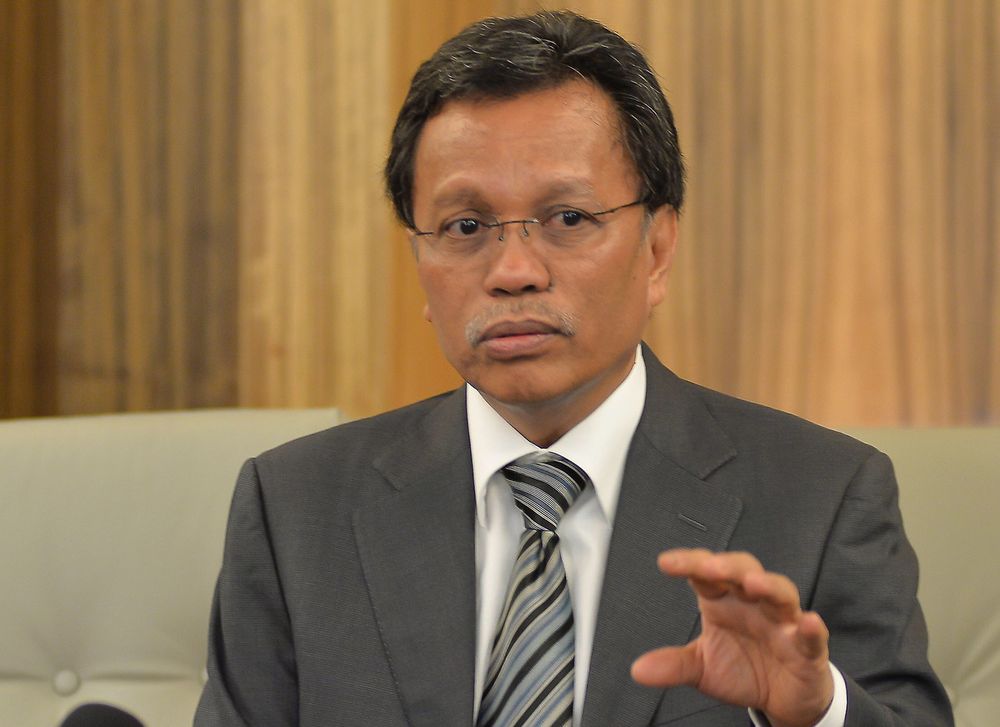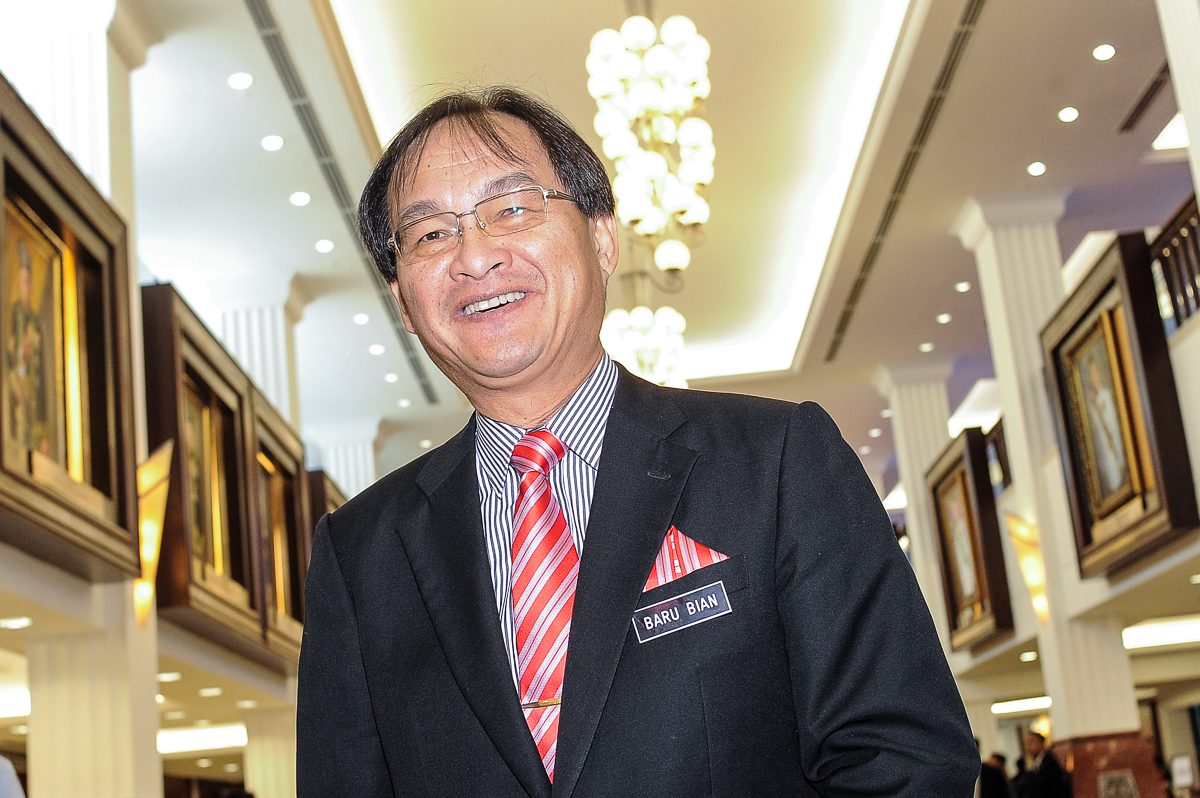KUALA LUMPUR, Sept 16 — This year marks the 55th anniversary of the formation of Malaysia. It is also the first time the country is being run at the federal level by a new partnership of political parties and leaders that mirror its inception in 1963.
Malay Mail asked and several political leaders in this Malaysia Baharu obliged, to share their views on nationhood and the road ahead.
Here are their thoughts, in their own words:
Datuk Seri Shafie Apdal, Sabah Chief Minister and Parti Warisan Sabah president
Malaysia Day is a day that must be properly remembered as the day we came together as a country that we love now.
We must celebrate our independence, that we live in a country where people are not only living in harmonious unity but also earning a good living.
There is no point to being an independent sovereign nation if our children don’t have jobs, our economy is down in the dumps, and there is no progress.
Malaysia Day is a day to celebrate how far we have come. We used to be out of the system. I remember that as a young boy in Semporna, I had followed my mum to the square where the Cobbold Commission was conducting a survey among the people.
There is a clearly a big difference between then and now that we should celebrate, but of course there is still a lot to be done to realise the people’s aspirations.
Datuk Seri Wilfred Madius Tangau, Sabah Deputy Chief Minister and Sabah Minister of Trade and Industry
Prior to 2010, many Malaysians see September 16 as just another day. For Sabahans, and Sarawakians too, it used to be a day designated as the official birthday of the state’s governor.
On October 19, 2009, the federal government finally acknowledged September 16 as the day Malaysia was born when in 1963 representatives of the government of the Federation of Malaya, Singapore, Sabah, Sarawak and the United Kingdom and Northern Ireland signed what is now known as the Malaysian Agreement 1963 (MA63), an international treaty and a legal agreement to form Malaysia.
Since then the spirit and intent of MA63 has been openly debated, with many calling for its full implementation.
Be that as it may, I personally see this year’s Malaysia Day as reminder for all of us, Malaysians in Sabah, to come together in one unity for the first time and to write a new chapter in our existence as Malaysians.
Our State of Sabah is blessed with natural resources endemic to Sabah and it is therefore in our wisdom to develop these resources in order for us to uplift and increase our socio-economic well-being and capacity.
Being the host for this year’s national level celebration has put Sabah on a platform where it gives us the opportunity to be able to express our desire and aspiration for a better deal guaranteed to us in the MA63.
Geographically, Sabah and Sarawak formed the Mainland Malaysia having 60 per cent of Malaysia’s land mass. While having the largest oil palm plantation in the country in term of acreage and a fair share in other commodity-based plantation, the two States also provide the biggest portion in oil and gas revenue to the nation, not to mention tax and tariff that are collected from us, of which, we are entitled to a certain percentage as mandated under Articles 112C and 112D in Part IV of the Tenth Schedule of the Federal Constitution.
We as a State and as a nation have a huge opportunity to enlarge our economic cake by putting industrialisations and downstream our commodities to the next level.
Some may look at the demographic composition of this nation base on the distribution of its population when disbursing the wealth of this country. However, we must not forget that the source of our wealth is also very important and these states that largely contribute to the nation’s income must be given their fair share of development especially in terms of allocation for development budget.
With this in our focus, let us therefore look at this year’s Malaysia Day celebration as a celebration to renew the commitment made by our founding fathers when the MA63 was first inked and signed and let be the day that will dawn a new era for Sabahans where they can look forward to finally realised what it means to be Malaysian.

Tan Sri James Masing, Sarawak Deputy Chief Minister and Parti Rakyat Sarawak president
When Malaysia was formed in 1963, I was in Form Three and studying in Sibu. At that time, Sibu town was not a pleasant place to be nor was it a very safe place. Communist insurgents were in the countryside. Every night we could hear gunfire and mortar bombs exploding on the hillsides around the school.
So when Malaysia was formed and assurance of peace were given by the government and the British, we students were very happy. At the same time, on our border, the Indonesians were attacking us, but the formation of Malaysia meant that we were a bigger entity, protected by Malaysian and Commonwealth armed forces.
Security was the main issue then. The formation of Malaysia saved us from communist insurgents and Indonesian aggression.
So Malaysia means a lot to me and to Sarawakians as a whole. She gave us peace during the Confrontation and the communist insurgency. Slowly we are developing into a country of the 21st-century.
My only regret is that Malaya should have been more honest with us and kept the promises under the Malaysia Agreement 1963. Members of the federation should have developed on par with each other.
However, we still have time. We have years ahead to make amends for things that we have done wrong. I am forever an optimist and I believe in Malaysia as a nation.
Let us all be honest and sincere with each other. Let us learn to forgive but not forget the past; only then will we learn to grow as a nation.
Baru Bian, federal Works Minister and Sarawak PKR chief
It is my opinion that we must accept the historical facts on the formation of Malaysia — we must accept, appreciate and understand the events before, during and subsequent to the signing of the Malaysia Agreement 1963.
What had been agreed upon, ie the terms and conditions must be appreciated and understood in the context of the political and socio-economic landscape at that time.
Having the proper understanding of the MA63 and the unfolding of events up until today, it is appropriate to review the agreement in view of the current sentiment about it.
The terms of the MA63 form the basis of Pillar 4 of the Manifesto of Pakatan Harapan set out in the Buku Harapan. There is a need to make right what had gone wrong during the past 55 years to steer us on to the trajectory of solid nation building.
Most Malaysians are aware that there are some voices calling for Sabah and Sarawak to leave Malaysia. This call is prompted by some real concerns and complaints of Sabahans and Sarawakians that we have been left out in the cold for many years in all aspects.
We must appreciate this unhappiness and the feeling of wanting to leave the federation of Malaysia. However, it is not practical to secede, for various reasons, foremost being the need for armed forces to ensure peace and security.
There are other essential services such as education, healthcare and certain infrastructure that are being provided by the federal government now.
The way forward is to find ways of resolving the problem rather than by running away from the situation (and possibly into more problems).
The new federal leaders must be sensitive and responsive to the needs of Sabah and Sarawak, and appreciate their sentiment.
If we are able to address these issues in a positive manner, Malaysia would be a great country to live in. If we are bold to address the so-called ‘sensitive’ issues of race and religion, Malaysia would truly be an excellent model of a multi-racial country.
We are already known for the peaceful coexistence among the many racial and ethnic groups, and with our political leaders’ boldness and sincere determination, we can be even better.
Without Sabah and Sarawak in the federation of Malaysia, this country would be the poorer for it, and less colourful. The various racial and ethnic communities of Sabah and Sarawak provide a rich diversity in culture and tradition, and add to the uniqueness of Malaysia.
As we rejoice in the Malaysia Baharu that was born out of the wishes and determination of the rakyat four months ago, the celebration of Malaysia Day this year takes on added significance.
The government has taken steps to right some of the wrongs, for instance the misconception in the past that 31 August was the celebration of Merdeka for the whole country, while in fact, it is really the celebration of the independence of Malaya in 1957. There is now a realisation and acknowledgement by the federal leadership of the historical facts. We have moved towards celebrating Bulan Kemerdekaan in August culminating on 31 August and Bulan Kebangsaan in September commemorated on 16 September.
The whole country is involved in these celebrations and this year, we have seen and felt a newfound pride in Malaysians during the celebrations on 31 August.
In ending, I must state that in order to truly move forwards towards an inclusive Malaysia, we must make it a priority to review our history books to make sure that accurate history is being taught in our schools.
In the past, many significant facts were omitted and our students were taught a distorted syllabus designed by those with their own agenda. This must be corrected so that the existence and contribution of all Malaysians towards our rich history are recognised and acknowledged.
This Malaysia Day, I feel optimistic that better and brighter times are ahead for us all.




















